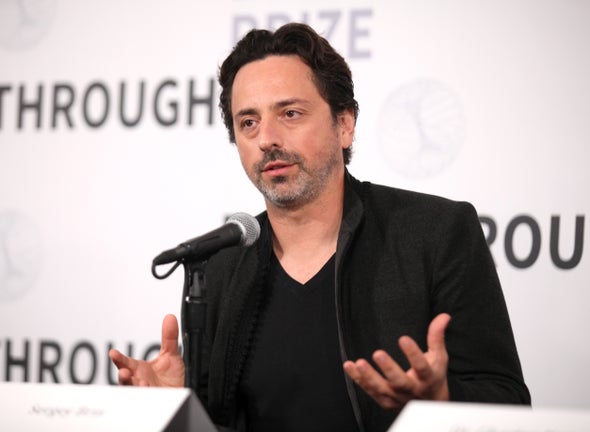
The world is on the cusp of a counterattack on COVID thanks to several vaccines that are currently seeking regulatory approval and a swift rollout. For entrepreneurs and the tech industry, this is a moment when their value to society is demonstrated: business and technology is (along with medicine) leading us out of the pandemic.
But Germany’s Turkish community, and Europe’s minorities in general, are celebrating for a different reason. Turkish-Germans are an often marginalized group, similar to other minorities around the world. Like any community, they are proud of their success stories, such as Ugur Sahin and Özlem Türeci, the husband-and-wife co-founders of BioNTech, the firm behind the first vaccine to report a successful phase three trial, based on cutting edge mRNA technology.
These highly visible success stories are relatively rare. Germany, just like much of Europe, has boardrooms that are almost uniformly white. This even includes the tech sector, which in the United States is one of the most open and meritocratic places in the world.
In my 20 years in tech, including in Silicon Valley, I have worked with founders with roots all over the world.
This shouldn’t be surprising: many of America’s biggest tech success stories are those of immigrant backgrounds. Google co-founder Sergey Brin was born in Moscow. Tesla’s Elon Musk is South African. Steve Jobs’s biological father is from Syria, and Jeff Bezos’s stepfather, Mike Bezos, is Cuban-American.
In the past, things have been very different on the other side of the Atlantic, where the only possible equivalent would have been Paris-born eBay founder Pierre Omidyar, who moved to the United States as a child, along with his Iranian-born parents.
Arguably it is Silicon Valley’s open attitude to investment and entrepreneurship that makes these American successes possible. Despite there still being no European Silicon Valley, I’m amazed at the level of innovation I’m seeing from start-ups across the continent, including places like Spain and France which are not always thought of as tech hubs. Many of those founders are from minorities, which are a natural fit for techpreneurship.
The huge expansion of tech jobs and tech-based entrepreneurship in the U.S. over the last two decades has created exponential demand for technical skills. Those are the types of skills that many immigrant kids are nudged towards, thanks to parents from developing nations who often see the value of science rather than, say, liberal arts.
A similar expansion is underway in Europe, despite a large portion of the continent’s industries still being traditional. To continue with the German example, only one of the country’s five largest companies, Siemens, is tech-related; its culture is very different from the “move fast and break things” attitude of Silicon Valley, with the firm being founded in 1847 (32 years before Edison filed a patent for his light bulb).
It is only in new, innovative industries that the immigrant work ethic and appetite for risk can come into their own.
To create more BioNTechs, European firms have to be ready to make way for the new wave of start-ups—whoever their founders are—without being suffocated by legacy businesses that are centuries-old and may be set in their ways.
At a more basic level, the relationship between host communities around the world and those of immigrant background needs to change. Most societies are very good at tolerating immigrants as much-needed Uber drivers and restaurant servers, less so at supporting them to develop their skills—and their children’s—to equip them for the top.
This isn’t sustainable, because each generation has grander designs than the one before. My parents moved to America in 1971, and as a second-generation immigrant my goals in life are even broader and more assertive than theirs. I have started a business, for example, when they didn’t. Just as I was given the opportunity to think bigger than my parents, my children are even more ambitious than I am.
Europe needs to move from a tactical, transactional mindset with migration towards a strategic, vision-based one. It should be more positive and aspirational: “We want to be the best, and we need to attract the world’s dreamers, innovators and disruptors if we are going to achieve that.”
As an American, I sometimes feel that Europe is stuck in the past. As a young country, America is not as set in its ways as many European nations. The U.S. still seems to act like a teenager: excited about the opportunities of the future, and perhaps sometimes being naive and getting itself into tricky situations (like a disputed election result).
Europe, on the other hand, acts more like a retiree. It prizes stability above all else—and many of its businesses are the same. Sometimes the price of stability has meant sacrificing innovation and opportunity.
The European Union is trying to create a similarly strong narrative to the American Dream to drive it forward. The post-Brexit United Kingdom is attempting the same with the image of “Global Britain.”
Whether they succeed will be demonstrated in the names and faces that shape their economies in the 21st century, and how similar they are to those that dominated the 20th.
"now" - Google News
December 02, 2020 at 07:00PM
https://ift.tt/37neeDQ
The U.S. Has Embraced Immigrant Tech Entrepreneurs. Now It's Europe's Turn - Scientific American
"now" - Google News
https://ift.tt/35sfxPY
Bagikan Berita Ini














0 Response to "The U.S. Has Embraced Immigrant Tech Entrepreneurs. Now It's Europe's Turn - Scientific American"
Post a Comment